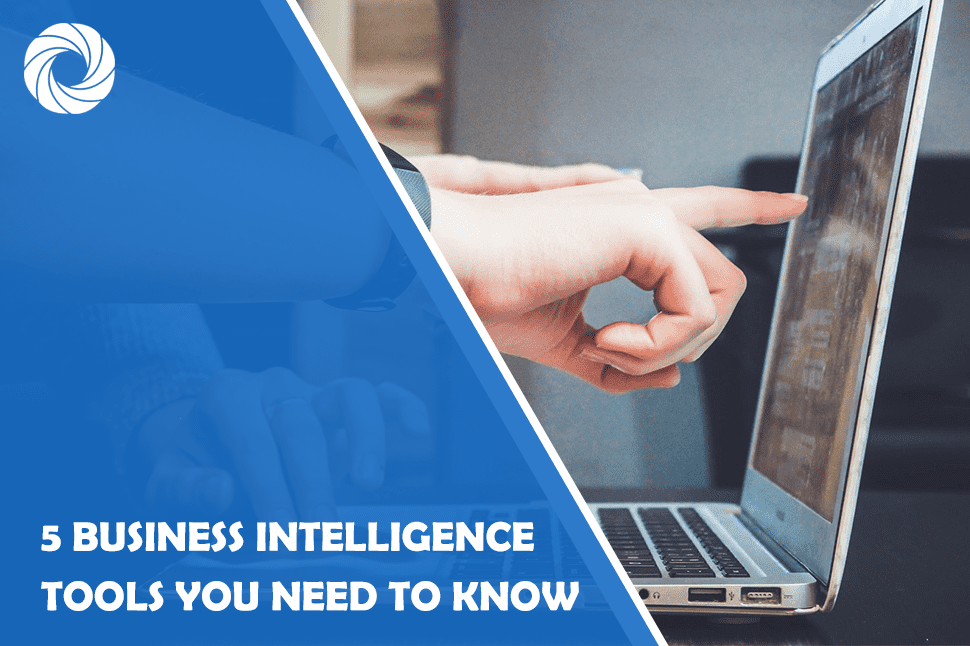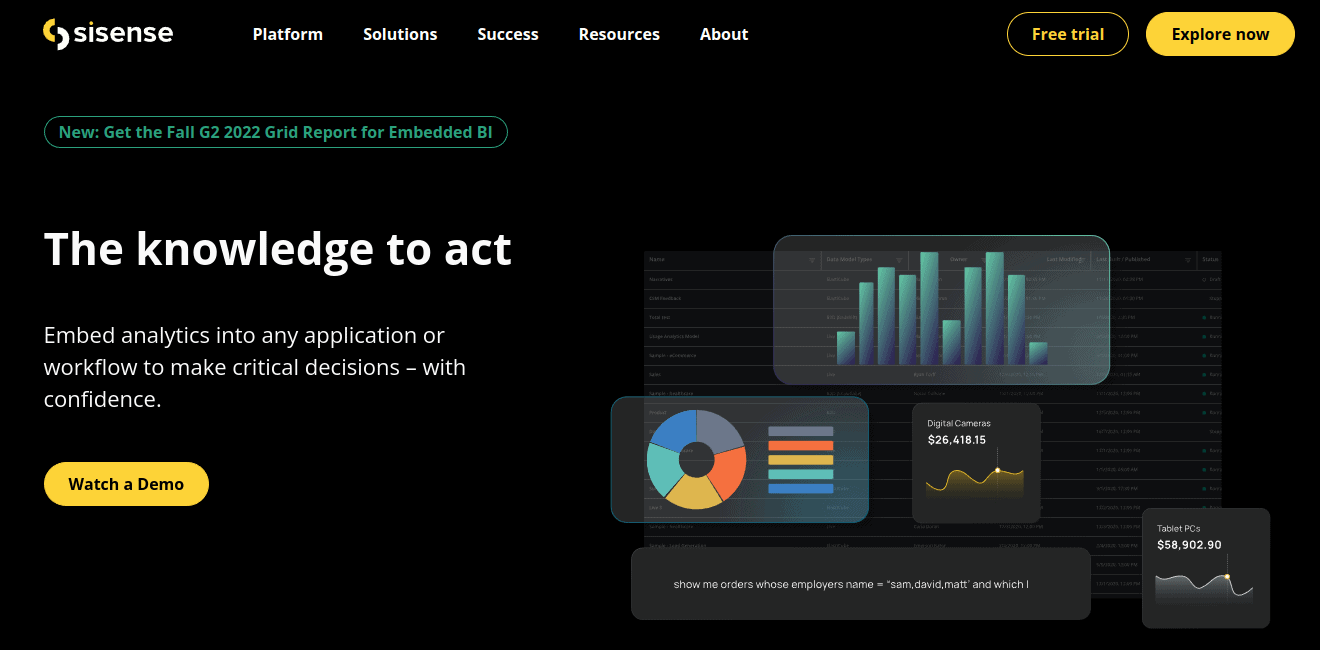Business intelligence technologies are expected to have a greater impact than ever before on businesses in the upcoming year as a result of their increasing importance. Considering that virtually everyone works remotely, at least in some capacity, the need for high-quality BI tools will become greater than ever. BI software helps organizations with data visualization and analytics to identify scenarios, market issues, and opportunities. As a result, managers and IT teams frequently look for the BI application that best suits their requirements. That’s why we decided to do the work for you today.
In this post, we’ll take a closer look at the top five Business Intelligence tools available on the market – each of them complete with a unique set of features and use cases. After comparing them, you will ultimately determine which software is ideal for your demands and your business.
1. Sisense
Sisense is a platform for business intelligence software and analytics that enables you to create handy analytical apps and streamline complicated data. Thanks to API-first cloud technology, the analytics apps can easily be embedded everywhere you want. It provides a self-service analytics platform that incorporates information from all touchpoints and a wide range of sources, including Adwords, Google Analytics, and Salesforce.
Additionally, it gives you the lowest TCO for creating enterprise-grade analytics solutions on-premises or in the cloud (total cost of ownership). Furthermore, it employs in-chip technology for parallel processing and an in-memory columnar database to support numerous servers while only using one server. These features make it extremely customizable and useful, so it’s safe to say this is the only software of the sort you’ll ever need.
It also offers formula integration with R functions. This is useful for advanced BI reporting and predictive analytics. Another standout feature we simply have to mention is called Sisense Pulse. It uses machine learning to detect and alert you of any data irregularities automatically.
2. Tableau

The two primary purposes of Tableau, an integrated business intelligence application, are data collection, and analysis. To construct datasets, the data can be gathered from various sources, including spreadsheets and cloud apps. Tableau's amazing visual options and the easy-to-navigate interface can be used to represent the whole scenario or business trend data. Tableau is a versatile software suitable for a variety of industries, including banking, healthcare, telecommunications, manufacturing, sales, and marketing, among others.
Using the collaboration tools, a dataset might be subjected to group analysis, and dashboards could be exchanged. It also offers automated data updates. This can help any business in growing as it allows you to derive valuable insight coming from the most recent data. Tableau can be set up either locally on a server or on the cloud. It also comes with a handy mobile app so that every piece of information you may need is accessible in an instant, even on the go.
3. QlikView
The self-service BI tool known as QlikView uses “association technology” to function. It is more suited for ad hoc analysis than routine analysis as some of its features are a tad simpler than our previous two recommendations. This also makes it a great choice for small businesses. Thanks to its in-memory technology, QlikView calculates the data as it is being sent from the backend to the front end. The system's memory can be preserved, and data transmission is quick since no pre-calculated data must be stored beforehand.
You can look for both direct and indirect data in QlikView. You can enter a phrase linked to the data you want to find during the indirect search to retrieve all the relevant information. However, even though QlikView is handy, it needs to be said that data management needs to be easier to use. Since it is currently a script editor, you’ll most likely need a programmer to tackle it, although someone with solid database experience can also easily handle the task. End users and non-technical persons can be hesitant to adopt QlikView at first because of how challenging the interface is to learn.
4. SAP Business Intelligence
SAP Business Intelligence provides a comprehensive business intelligence package to assist you with data visualization, data analysis, and reporting. By racking important data and giving you access to useful information, it can assist you in removing guesswork when making important business decisions. With only a few clicks, the cloud-based analytics solution can help you find solutions to complicated challenges using technologies like in-memory computing and machine learning.
You can use it to exchange data and reports instantly with the cross-enterprise sharing option. Additionally, connection with Office enables you to alter, filter, and spot certain trends in data. Managers can also perform extensive data analyses and incorporate data into Microsoft PowerPoint presentations. This scalable BI application further provides self-service access to tailored and in-context insights across all devices.
5. Domo
Because it is cloud-based and offers solutions for the integration of very large datasets, Domo is a truly special Business Intelligence tool. It can easily handle data gathered from both local and online storage. Sharing these linked datasets is quite simple for Domo. The software uses well-designed visualization tools and can operate with tables, pie charts, graphs, and more. Plus, you can monitor most of it in real time. Online page visits, for instance, can be monitored in real-time.
Another great thing about Domo is that it provides a platform for social sharing and teamwork. Through these social media sites, a user can also participate in a group conversation on analytical reports. In addition to all of this, it also provides both GUI-based and SQL-based data flows.
Final Thoughts
Although gathering, integrating, analyzing, and visualizing data is each tool's primary purpose, improvements are always made to increase productivity. The market for BI tools is expanding quickly. Recent developments in cloud deployment and mobile support have proven to be ground-breaking, enabling user access from practically any device.
Useful technologies like business intelligence can only hope to advance with the development of new technologies and modifications to existing ones. Is there something you'd like to add? Feel free to let us know in the comment section.

